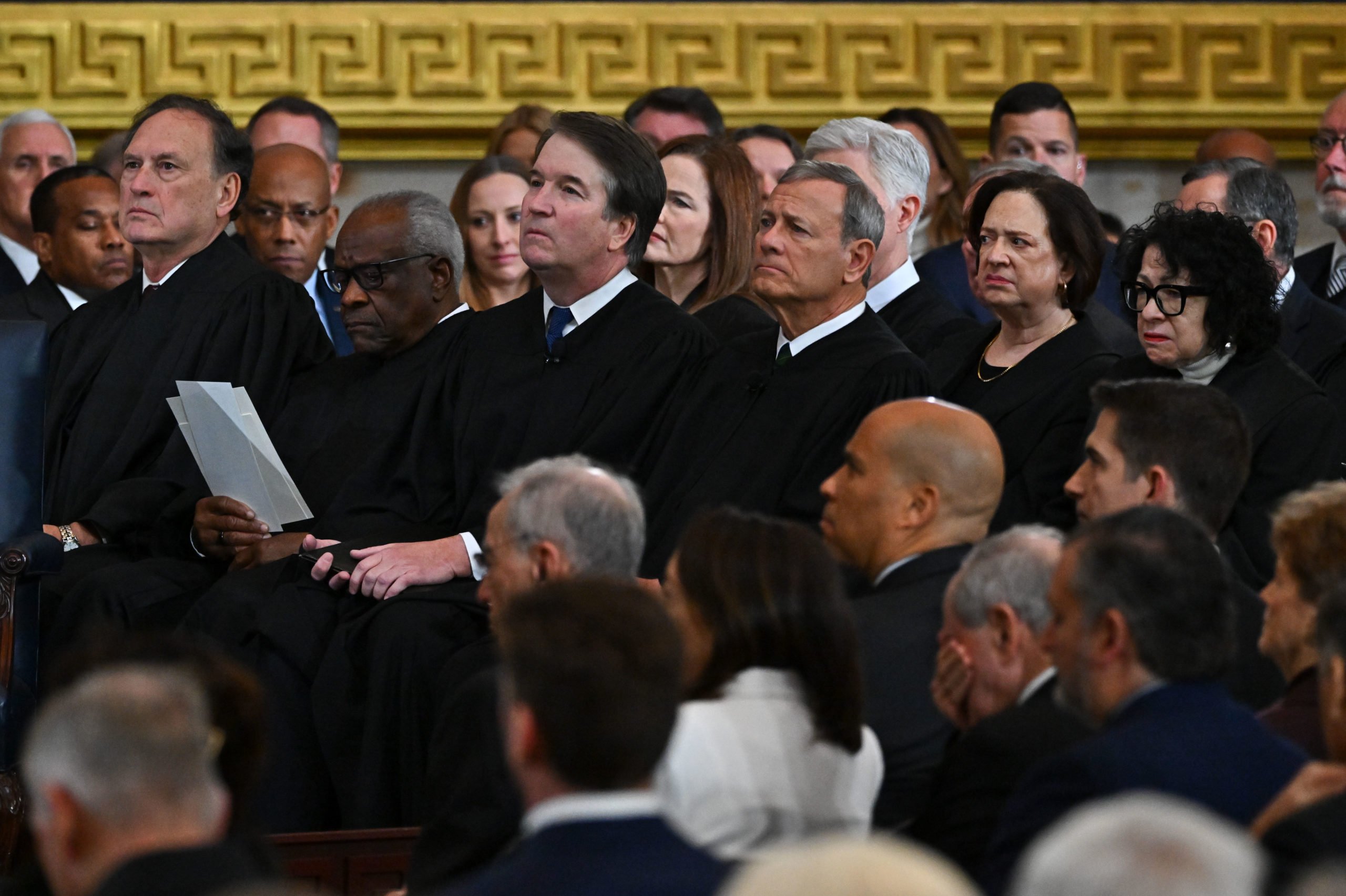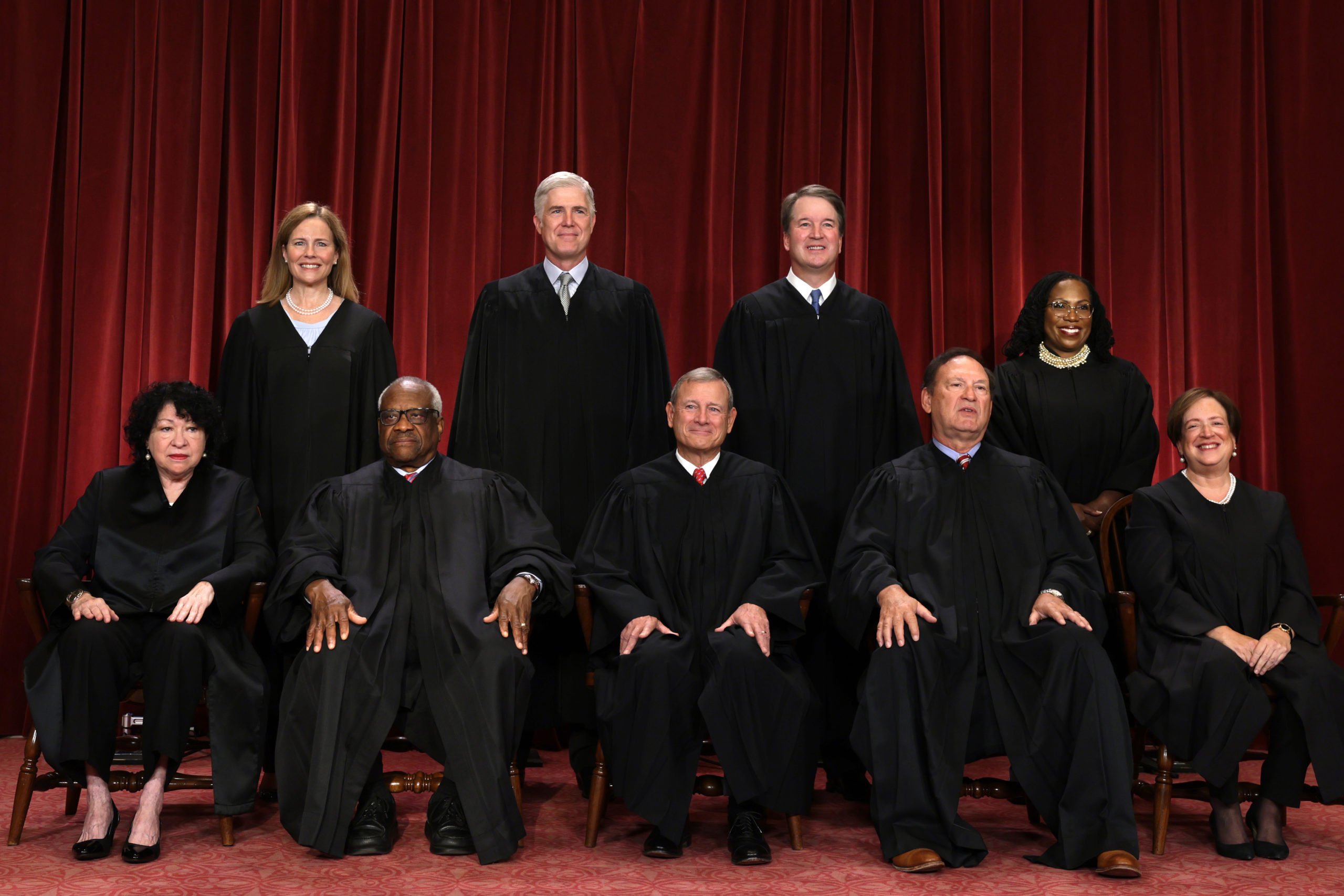Federal judges are increasingly ruling against the Trump administration’s agenda and in defiance of Supreme Court orders.
The executive branch finds itself fending off endless counter-opinions from federal judges in the courtroom as it continues to implement its hard-line immigration policies. While the Trump administration has scored major victories in the nation’s highest court, including successfully reining in the scope of nationwide injunctions by federal judges, some have chosen to defy Supreme Court rulings. (RELATED: DC Bar Recommends Disbarring Trump White House Official)
U.S. District Judge Jia Cobb, an appointee of the Biden administration, blocked the Trump administration on Friday from using a process known as “expedited removal” to quickly remove illegal migrants from the country, according to court documents. The order could, at least for the time being, dramatically curtail the White House’s ability to carry out its deportation agenda.
In a public statement about the ruling, an administration spokesperson slammed the Biden-appointed judge, accusing her of defying a previous Supreme Court ruling.

WASHINGTON, DC – JANUARY 20: Supreme Court Justice Samuel Alito, Supreme Court Justice Clarence Thomas, Supreme Court Justice Brett Kavanaugh, Supreme Court Justice Amy Coney Barrett, Supreme Court Chief Justice John Roberts, Supreme Court Justice Elena Kagan and Supreme Court Justice Sonia Sotomayor attend the inauguration of U.S. President Donald Trump in the Rotunda of the U.S. Capitol on January 20, 2025 in Washington, DC. (Photo by Ricky Carioti – Pool/Getty Images)
“Judge Cobb is flagrantly ignoring the United States Supreme Court which upheld expedited removals of illegal aliens by a 7-2 majority,” Homeland Security Assistant Secretary Tricia McLaughlin said in a public statement. “This ruling is lawless and won’t stand.”
Similar cases have played out in recent months.
When Judge Brian Murphy of the Federal District Court in Massachusetts — appointed to the bench by the Biden administration — issued a preliminary injunction in April against the transfer of deportable illegal migrants to third countries, a majority on the Supreme Court later issued a stay on Murphy’s order.
However, the Biden-appointed judge decided that his order remained in effect, citing a dissent from Justice Sonia Sotomayor. The Trump administration referred to Murphy’s action as “unprecedented defiance” of the Supreme Court’s authority, according to court documents.
“The district court’s ruling of last night is a lawless act of defiance that, once again, disrupts sensitive diplomatic relations and slams the brakes on the Executive’s lawful efforts to effectuate third-country removals,” Solicitor General D. John Sauer wrote to the justices in June.
The Supreme Court ruled in the administration’s favor again in a 7-2 decision in July, allowing the Trump administration to deport the group of migrants to South Sudan, confirming Murphy’s rulings to be void.
Even more examples have piled on in recent times.

WASHINGTON, DC – OCTOBER 07: United States Supreme Court (front row L-R) Associate Justice Sonia Sotomayor, Associate Justice Clarence Thomas, Chief Justice of the United States John Roberts, Associate Justice Samuel Alito, and Associate Justice Elena Kagan, (back row L-R) Associate Justice Amy Coney Barrett, Associate Justice Neil Gorsuch, Associate Justice Brett Kavanaugh and Associate Justice Ketanji Brown Jackson pose for their official portrait at the East Conference Room of the Supreme Court building on October 7, 2022 in Washington, DC. The Supreme Court has begun a new term after Associate Justice Ketanji Brown Jackson was officially added to the bench in September. (Photo by Alex Wong/Getty Images)
Judge Michael Simon, appointed to the U.S. District Court for the District of Oregon by the Obama administration, ruled in July that the Department of Homeland Security could not engage in wide-scale parole status terminations for migrants. The Obama-appointed judge cited other lower-court decisions that prohibited similar actions, but did not mention that the Supreme Court stayed those decisions over a month ago.
In May, the Supreme Court squashed orders from another federal district court that had blocked President Donald Trump’s dismissal of two members from the National Labor Relations Board and the Merit Systems Protection Board. The ruling found that the federal government was likely to prevail due to substantial executive power exercised by these two federal agencies.
However, the U.S. Court of Appeals for the Fourth Circuit chose not to stay a District Court order enjoining presidential removal of members from the Consumer Product Safety Commission, a nearly similar agency. Ultimately, the Supreme Court in July granted the stay, citing a previous order as precedent.
The Trump administration, which has grown increasingly frustrated with “activist judges” continually undermining its agenda, scored a major victory in late June when, in a 6-3 vote, the Supreme Court dramatically limited lower courts’ ability to issue nationwide injunctions in a decision revolving around Trump’s birthright citizenship order.
“The injunctions before us today reflect a more recent development: district courts asserting the power to prohibit enforcement of a law or policy against anyone,” Justice Amy Coney Barrett stated in the majority opinion. “These injunctions — known as ‘universal injunctions’ — likely exceed the equitable authority that Congress has granted to federal courts. We therefore grant the Government’s applications to partially stay the injunctions entered below.”
The White House referred to the decision as a “big win” in a press statement shortly following the order.
However, in the relatively short amount of time since that Supreme Court ruling, lower courts have repeatedly taken advantage of exceptions in the order that still allow them to issue nationwide injunctions. Lower courts have blocked the president’s asylum ban at the southern border and barred the White House from ending deportation protections for Haitian nationals.
A federal judge in late July barred the Trump administration from ending birthright citizenship for the children of illegal migrants, marking the third such nationwide court ruling blocking the order since the Supreme Court ruling.
All content created by the Daily Caller News Foundation, an independent and nonpartisan newswire service, is available without charge to any legitimate news publisher that can provide a large audience. All republished articles must include our logo, our reporter’s byline and their DCNF affiliation. For any questions about our guidelines or partnering with us, please contact licensing@dailycallernewsfoundation.org.


![Former Bravo Star Charged After Violent Assault Using a Rock-Filled Sock in Tennessee Walmart [WATCH]](https://www.right2024.com/wp-content/uploads/2025/07/Former-Bravo-Star-Charged-After-Violent-Assault-Using-a-Rock-Filled-350x250.jpg)



![Karoline Leavitt Levels CNN's Kaitlan Collins and Other Legacy Media Reporters [WATCH]](https://www.right2024.com/wp-content/uploads/2025/07/Karoline-Leavitt-Levels-CNNs-Kaitlan-Collins-and-Other-Legacy-Media-350x250.jpg)
![Man Arrested After Screaming at Senators During Big Beautiful Bill Debate [WATCH]](https://www.right2024.com/wp-content/uploads/2025/06/Man-Arrested-After-Screaming-at-Senators-During-Big-Beautiful-Bill-350x250.jpg)


![Illegal Alien Walked Free After Decapitating Woman, Abusing Corpse for Weeks [WATCH]](https://www.right2024.com/wp-content/uploads/2025/07/1753013138_Illegal-Alien-Walked-Free-After-Decapitating-Woman-Abusing-Corpse-for-350x250.jpg)






